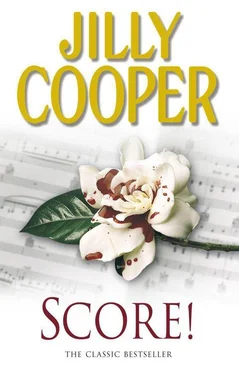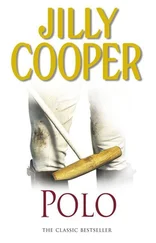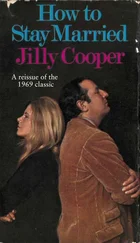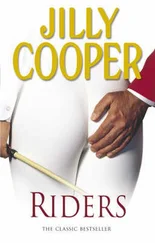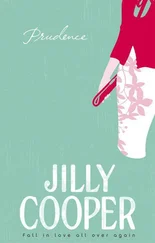To his left, coiled up like a sleeping snake, was the famous Valhalla Maze. To the right, deep in the woods, lurked the watchtower, where he edited, composed and seduced. Beyond, disappearing into the mist, was the ravishing mill house, belonging to Hermione Harefield, his mistress for the last eighteen years.
But even as Rannaldini gloated over his valley, the dying fires of autumn seemed to symbolize his own decline. For the first time ever, his massive royalty cheque was down. Last Sunday, when he was conducting at the Appleton piano competition, his favoured candidate and latest conquest, the ravishing Natalia Philipovna, had been beaten into second place, despite intense lobbying, by Rannaldini’s detested stepson, Marcus Campbell-Black.
The same evening, Rannaldini learnt he had failed in his bid to take over the Rutminster Symphony Orchestra, who had accompanied the finalists. As an ultimate humiliation at the party afterwards, the first horn had hit Rannaldini across the room — his fall had been broken only by the pudding trolley and the flaccid curves of a grisly crone from the Arts Council. The newspapers had had a field day. Rannaldini shuddered.
Like Philip II of Spain, who had exhausted himself and his nation’s coffers trying to hold his Habsburg Empire together, Rannaldini was also learning by bitter experience that his vast kingdom could be maintained only by the crippling expense of waging war on all fronts. He was currently engaged in law-suits with orchestras, unions, sacked musicians, mistresses and ex-wives.
Nineteen months ago, merely to spite his great enemy, the very rich and arrogant Rupert Campbell-Black, whom he believed had orchestrated the break-up of his third marriage, Rannaldini had made a catastrophic fourth marriage to Rupert’s neurotic ex-wife, Helen. In return for his habitual infidelity, Helen was now busy squandering his millions and, because Rannaldini was only five foot six, deliberately dwarfing him in public by wearing very high heels.
Rannaldini was sad that his two eldest children from earlier marriages, Wolfgang and Natasha, had left home after frightful family rows. But, saddest of all, he knew his music was suffering. Accusing Rannaldini of blandness in the Daily Telegraph last Monday, Norman Lebrecht had suggested he stopped settling scores and started studying them again. Rannaldini might outwardly be the greatest conductor in the world, with orchestras in New York, Berlin and Tokyo, but he was poor in spirit and horribly alone.
Outside, rain swept across the woods like ghost armies marching on Valhalla. Although his office was tropically warm and the windows and doors were closed, an icy wind suddenly rustled all the papers and the fire died in the grate with a hiss. On the chimney-piece, a gilt and ormolu clock of Apollo driving the horses of the sun chimed twelve noon.
Valhalla was full of ghosts. They never frightened Rannaldini: they were his accomplices in terrorizing the living. But, hearing an almost orgasmic groan, he lookedup quickly at the Étienne de Montigny oil to the right of the fireplace. Entitled Don Juan in Transit , it portrayed the great lover, looking suspiciously like Rannaldini, humping a lady of the manor but distracted by the swelling bosom of her young maid hanging clothes outside in the orchard. It was the attention to detail — the yellow stamens of the apple blossom, each hair under the maid’s armpit, the pale green spring light — that made the painting so perfect.
Rannaldini smiled at his reflection in the big gilt mirror. His hair might be pewter grey but his face was still as virile and handsome as Don Juan’s in the picture. He also had two trump cards.
The first was a film of Don Carlos , which he was poised to conduct and co-produce. The nightmare of cutting a three-and-a-half-hour opera down to a manageable two hours for filming had not been helped by Rannaldini insisting that an overture, an aria, and linking passages to make the story more accessible, all composed by himself, be included. The plot of Don Carlos had been gingered up with several sex scenes and, to appeal to the pink pound, Carlos’s best friend, the gallant Marquis of Posa, would be portrayed as a homosexual.
An all-star cast, who would have screaming hysterics when they discovered any of their numbers had been cut, had been assembled for some time, because singers have to be booked several years ahead. They included Hermione Harefield, who at forty would need careful lighting to play the young Elisabetta. Nor could she act, but at least she did what Rannaldini told her, which was more than did Franco Palmieri, who was playing Don Carlos and who had grown so fat he made Pavarotti look anorexic. However, it had been written into his contract that he must lose seven stone before filming started next April.
In the past Rannaldini had often given juicier parts, in more ways than one, to his ex-wife Cecilia in lieu of alimony, but she and Hermione would have murdered each other on location. As a result, the part of the seductive, scheming Princess Eboli had gone to a ravishing mezzo, Chloe Catford. The search, though, was still on to find an unknown star to play the Marquis of Posa. Having, in his opinion, agreed to over-pay everyone else, Rannaldini was hunting for a bargain.
Opera films were seldom big box office. Why, therefore, had these vastly high-earning singers committed themselves when they knew what purgatory it was to work with Rannaldini?
The answer was Tristan de Montigny, who by driving himself into the ground to win some recognition from his father, Étienne, was now one of the hottest directors in the world. With his ravishing English-speaking version of Manzoni’s The Betrothed tipped to win several Oscars, he had spent the summer filming Balzac’s The Lily in the Valley with Claudine Lauzerte. The word on the street was that, despite being over fifty, ‘Madame Vierge’ had never looked more beautiful or acted better.
Success with actors of both sexes had been helped by Tristan’s wonderfully romantic looks: the model whom Calvin Klein loved best. At six foot two, he was too thin, and his gold curls had darkened to burnt umber, but the peat-brown, heavily shadowed eyes, the cheekbones higher than the Eiffel Tower, and the big mouth, usually smiling but of incredible sadness in repose, made everyone long to make him happy.
But it was a mistake to be fooled by Tristan’s gentleness: he could be both manipulative and monomaniac in getting the film he wanted.
He and Rannaldini were both so successful that they seldom managed to meet except for an hour snatched at an airport or a midnight dinner after a concert, but they had retained their affection for one another and their dream of working together, which at last was going to be realized.
But, sadly, too late to please Étienne. All the newspapers littering Rannaldini’s desk reported that France’s greatest painter since Monet was dying but refusing to go to hospital. Rannaldini was tempted to cancel tonight’s Barbican concert and fly out to bid his old friend farewell, but he’d get more coverage if he waited until the funeral. He couldn’t spare the time for both.
He felt a surge of hatred as he noticed an intensely glamorous photograph in Le Monde of Rupert Campbell-Black embracing his son Marcus before putting him on a plane to Moscow. If Rupert was relinquishing one child, he might consider a reconciliation with another, Marcus’s younger sister, the ravishing nineteen-year-old Tabitha. Rupert loathed Rannaldini so much that he had disinherited both Marcus and Tabitha for attending their mother’s wedding to Rannaldini.
Tabitha, however, like Tristan, was one of the few people who liked Rannaldini — not least because, when she became his stepdaughter, he had given her a large allowance and bought her a wonderful horse called The Engineer. But within a few weeks of marrying Rannaldini, Helen had caught him leering through a two-way mirror at Tabitha undressing, and packed her off to an eventing yard in America. There Tabitha was winning competitions and was already spoken of as an Olympic possible. She was also making friends.
Читать дальше
